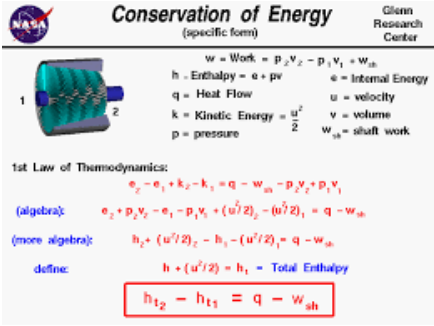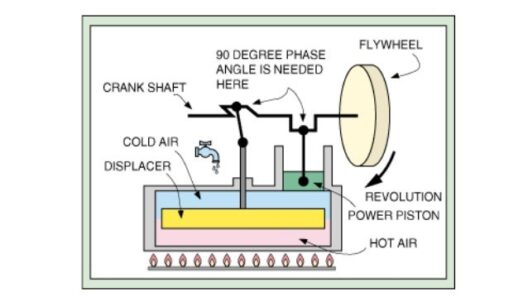Energy conservation has emerged as one of the most pressing issues in contemporary discourse on sustainability and environmental stewardship. The concept itself envelops the idea of reducing energy consumption and maximizing efficiency, yet it also invokes deeper inquiries about the very fabric of our universe and the laws that govern it. As we delve into the quandary of whether energy can be conserved indefinitely, we encounter the intricate tapestry of thermodynamics and its pivotal role in shaping our understanding of energy dynamics.
To embark on this exploration, it is crucial to first grasp the foundational principles of thermodynamics. This branch of physics, often divided into four core laws, elucidates the behavior of energy and its transformations. The First Law of Thermodynamics, commonly known as the Law of Energy Conservation, posits that energy cannot be created or destroyed; it can only be transformed from one form to another. This tenet suggests that the total energy within a closed system remains constant. Consequently, the implications of this law are profound: while energy may change forms—transitioning from kinetic to potential, or from thermal to mechanical—its overall quantity remains unchanged.
However, the Second Law delves deeper into the complexities of energy conservation, introducing the concept of entropy. Entropy, often described as a measure of disorder, implies that energy transformations are not only inevitable but also lead to an increase in the overall entropy of a closed system. This law articulates a cruel irony; while energy persists in its conservation, the efficiency with which it can be harnessed diminishes over time. Every energy transformation carries the potential for waste, and as energy systems revert to a state of equilibrium, the usable energy dwindles. Thus, while it is theoretically feasible for energy to be conserved, the practicalities reveal a more pessimistic outlook.
The inherent limitations of energy efficiency compel attention towards technologies and practices designed to mitigate energy loss. Progressive advancements in renewable energy sources, such as solar, wind, and hydropower, represent a critical turning point in our quest for sustainability. These technologies harness natural processes and convert them into usable energy without the deleterious emissions associated with fossil fuels. Nevertheless, the production of renewable energy systems entails its own energy expenditure, which raises critical questions about net energy yields and the long-term viability of these solutions. Can these sources truly sustain energy demands forever? The answer oscillates between optimism and pragmatism, revealing the need for ongoing innovation and adaptation.
The fascination with energy conservation is not merely an empirical endeavor; it encapsulates an ethical responsibility towards future generations. Climate change, resource depletion, and environmental degradation are urgent realities that underscore the imperatives for conservation. The notion of conserving energy transcends beyond personal habits or technological advancements; it embodies a holistic approach to sustainable living. This consciousness of stewardship cultivates a sense of interconnectedness, binding individuals to a larger narrative about the health of our planet.
Collective societal efforts also contribute to the discourse on energy conservation. Legislative frameworks, policy initiatives, and grassroots movements play integral roles in fostering an environment conducive to energy savings. For instance, the implementation of energy efficiency standards in buildings, transportation, and manufacturing processes can drastically reduce consumption while simultaneously enhancing performance. Public transportation systems, carpooling, and active urban design are just a few examples of how shared commitment to energy conservation can yield tangible results.
Yet, the existential question remains: can energy be conserved forever? The answer, entwined with paradoxes, invokes the idea of sustainability—not as a linear trajectory, but as a dynamic equilibrium. Energy conservation is not simply about maintaining current consumption levels; it also involves a perpetual cycle of restoration, innovation, and adaptation. The anthropogenic alterations to natural systems necessitate a reevaluation of how society interacts with energy resources. Achieving harmony with nature requires nuanced understanding and proactive engagement with energy systems.
Continued exploration of energy-conserving technologies is paramount. The advent of smart grids, energy storage systems, and demand-response initiatives represent only the tip of the iceberg. The incorporation of artificial intelligence and machine learning into energy management systems holds the potential for unprecedented optimization. As society grapples with the repercussions of climate crises, these innovations serve as beacons of hope, demonstrating that while energy may not be conserved forever in an absolute sense, our capacity to adapt and improve is boundless.
Ultimately, the exploration of whether energy can be conserved indefinitely leads to profound reflections on our place in the cosmos. The intricacies of thermodynamics compel us to confront hard truths, yet they also inspire a relentless pursuit of solutions. As stewards of the Earth, it is essential to embrace the dual realities of energy permanence and the inevitability of entropy, channeling them into meaningful action. Conservation is not a finite endeavor; it is a perpetual narrative of human resilience and ingenuity, beckoning us to commit to a sustainable future.
In conclusion, the thermodynamics dilemma invites a paradigm shift in how we perceive energy conservation. Rather than viewing it as an isolated act, it embodies an ongoing process—one that fuses technology with ethics, innovation with responsibility, and individual actions with collective goals. In the quest to navigate the delicate balance of energy conservation, a paradigm rooted in understanding will illuminate our path toward a sustainable future.








